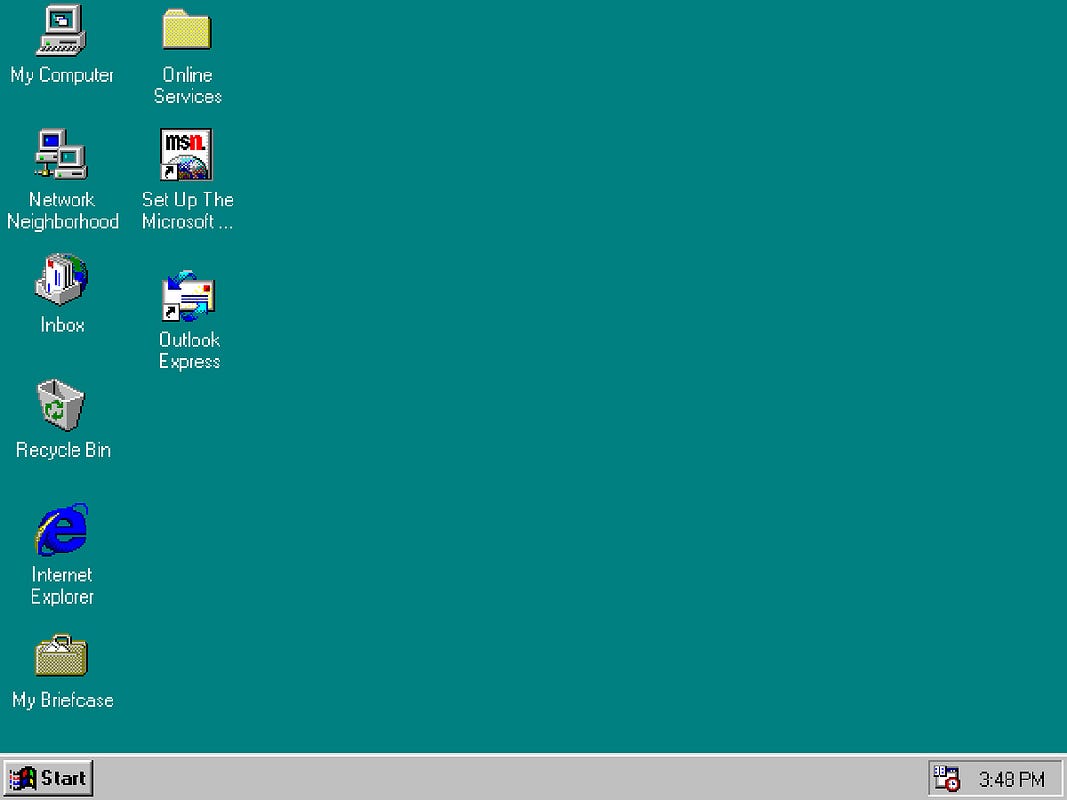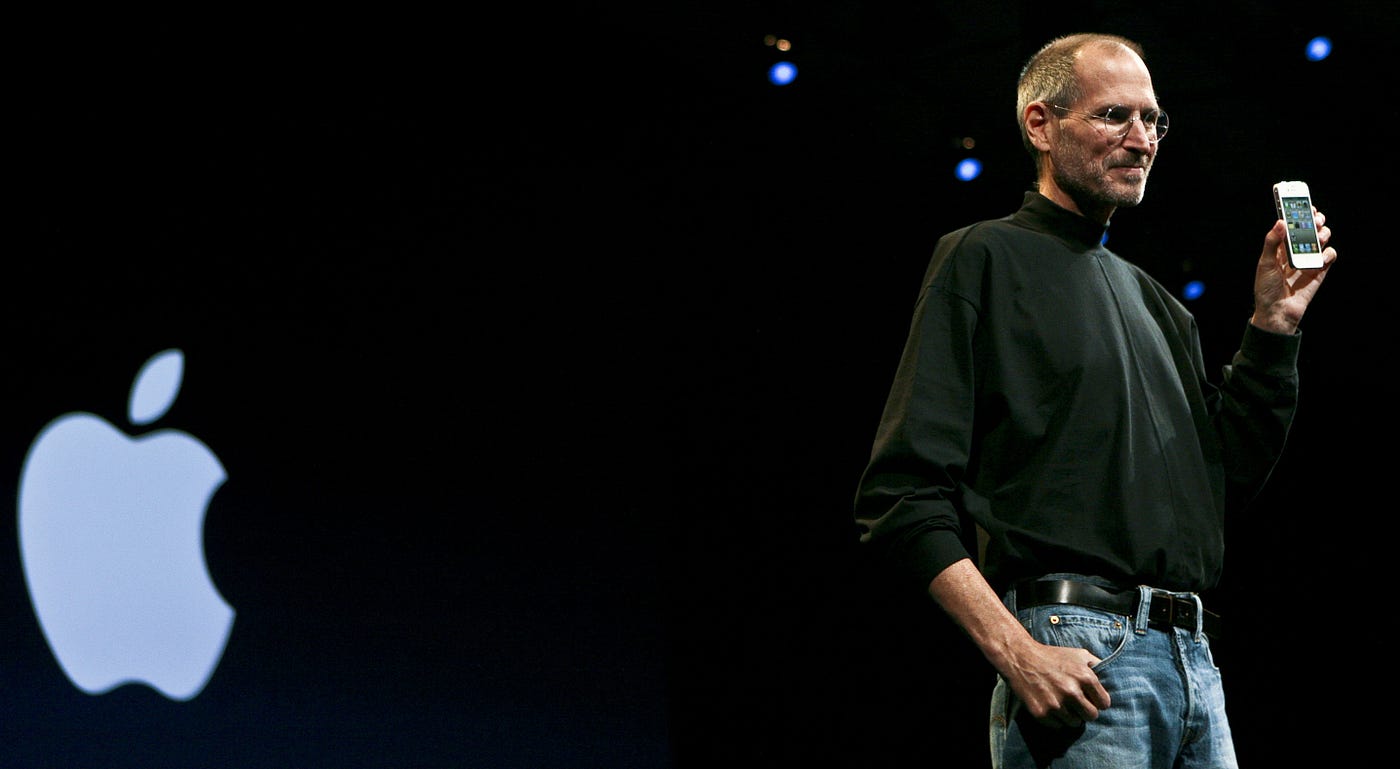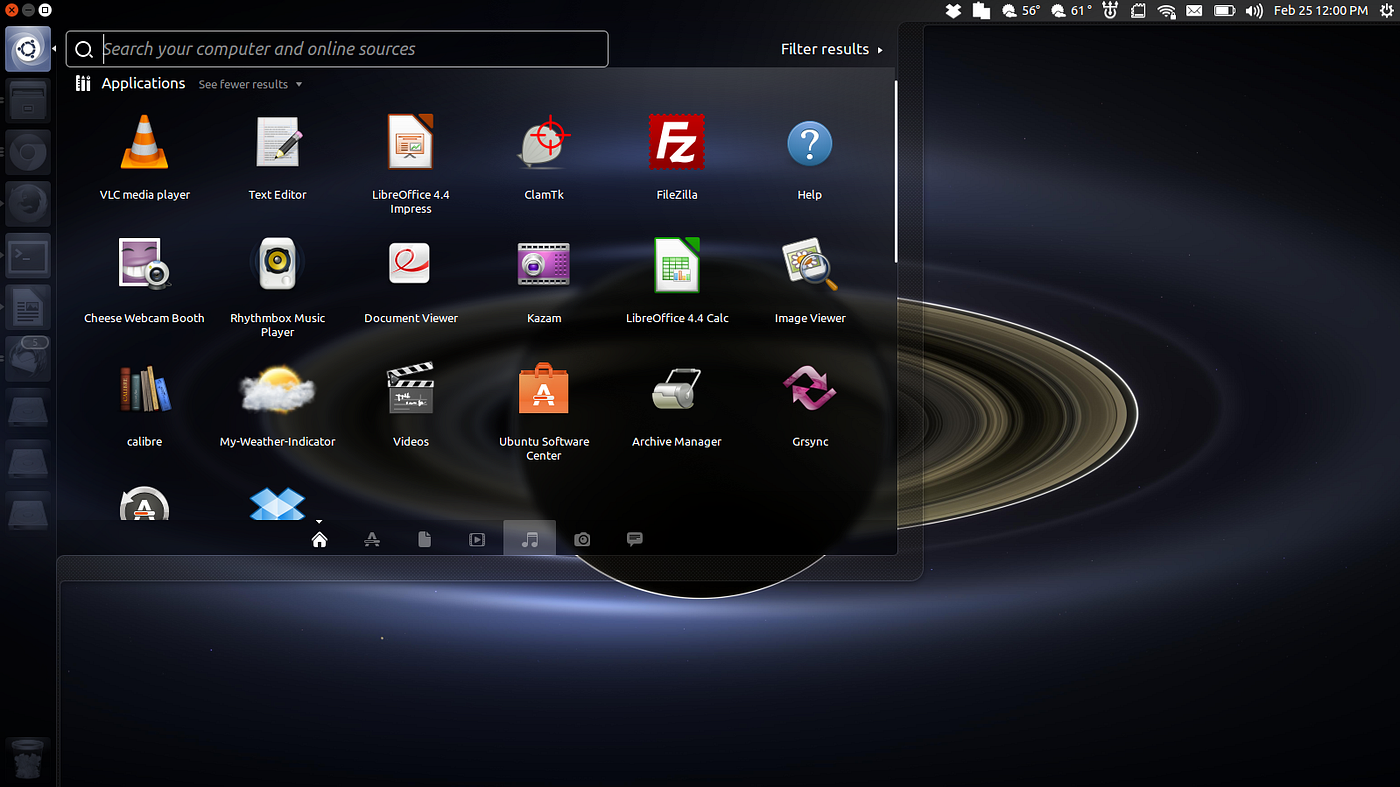歐盟幾天前對谷歌提出了正式的反壟斷指控,谷歌立即進行了斬釘截鐵的回擊。此后,谷歌將有十周時間,也就是兩個半月的時間,來最終決定是尋求私了和解,還是對簿公堂。業界比較一致的觀點是,谷歌并不害怕打官司,因為,憑借其無限的資源,他們完全有能力來應對一場曠日持久,也許會長達數年的訴訟。在這個過程中,谷歌可以進一步鞏固自己的優勢,面對更大的挑戰。把整個事件引向無休止的訴訟,恰好是谷歌所喜聞樂見的。
事實上,目前谷歌最大的敵人,并不是歐盟或者美國的監管當局,而是Facebook,一個新興的更有恃無恐的自然壟斷者。決定谷歌命運的,不會是歐盟的圍堵,而是Facebook 的挑戰。因此,歐盟對于谷歌的反壟斷指控的意義,也決不能就事論事。它其實提出了一個更為嚴峻,看起來了也更顯無解的問題:如何與擁有自然壟斷地位的高科技巨頭打交道?歐盟與這樣的巨頭已經打了十多年的交道,似乎還沒有找到解決方案。
在對這個問題進行思考并尋求解決方案的,并非歐盟一家。有一個人早就提出了這個問題,并以跟蘋果、谷歌、微軟說再見的方式,以一已之力,開始了一場堂吉訶德式的戰爭。在這樣的背景下,“跟蘋果、谷歌、微軟說再見”口號,是不是看起來具備了更為深刻而強力的人文色彩? ( Updated,Apr.18)

一個中國人要跟谷歌說再見,不容易,安卓這道坎不容易邁;跟蘋果說,有點難;跟微軟說再見,更難。一個美國人要跟谷歌、蘋果、微軟說再見,無法想象。一個硅谷的美國人要跟谷歌、蘋果、微軟說再見,呵呵,更無法想象。但就是有這么一位身在硅谷的美國人,一位可以被稱為硅谷記者良心的老人,喊出了這么一句口號。
他不是心血來潮。雖然正式以這樣的口號喊出,還是第一次,但是,這是他一脈相承的思想。他的名字叫丹·杰爾默,如雷貫耳的名字。他是出身硅谷的報紙 —— 圣何塞水星報的著名記者。他自稱,從來不是硅谷的啦啦隊長;人稱,他是一個無畏的記者。
丹·杰爾默的文章發表在正逐步走紅的 Medium 網站上。Medium 的確越來越有大家風范。丹·杰爾默的這篇文章光從標題看,就值得一讀。《為什么我要跟蘋果、谷歌和微軟說再見》。這是發表在 Medium重金打造的網上雜志 Backchannel 上的文章(2015年2月26日 ),Backchannel由前連線雜志挖來的名編輯 Steven Levy 主刀。Steven Levy 曾經在美國新聞周刊供職十幾年,是其最重要的科技記者和編輯。(在整個Medium上,重金砸出來的重磅文章越來越多。這就是埃文·威廉姆斯期待的方向?不知道。但是,這樣的持之以恒的作派,的確展現了所謂平臺型媒體的魅力。也許,Medium 暫時還算不上一個卓越的平臺,但肯定已經是一個卓越的媒體。新一代網上雜志,不是浪得虛名。杰爾默的文章摘要貼在下面,全文見主題鏈接)
丹·杰爾默是一個固執的老頭,有時候甚至有些偏執。但是,他始終是值得尊敬的。作為一個難得的技術自由思想家,他比一般的技術控更多一份憂患意識。在這篇文章里,他告訴我們,蘋果、谷歌、微軟都很好,很強大,但是,他們太強大了。他們控制欲太強了。我們不能把自己完全交給這些巨頭,不能被他們鎖定。事實上,杰爾默清楚地知道,與這些巨頭告別是不可能的任務,他的訴求僅僅是,不要被他們所完全控制,要擁有自己的不可剝奪的科技自由。這與他的一貫思想一脈相承。作為自媒體(We Media)一詞的始作俑者,在談到自媒體時,他說,目前仍然不是自媒體(We Media)時代,不是“我們”的時代,而是“他們”的時代!他們仍然在并且要主宰世界。他們,當然包括蘋果、谷歌和微軟。
在與他們的斗爭中,杰爾默幾乎沒有勝算。但是,這個倔老頭知其不可而為之。我們能幫他做點什么呢?呵呵,沒有。杰爾默把斯諾登稱為真正的美國愛國者,我愿意把他稱為真正的技術自由戰士,真正的愛技術者。這個人,是硅谷記者的良心。他見證了整個互聯網時代,始終是一個給“他們”制造麻煩的人。前不久,他還責備過 Medium。顯然,埃文·威廉姆斯在他心目中,也是“他們”。
下面是我前不久寫的關于自媒體文章中的一小段,與杰爾默這里討論的問題契合,其中引用了不少杰爾默的精彩觀點,有助于理解其與谷歌、蘋果、微軟說再見思想的由來。
谷歌在歐洲是公敵,2014年,德國、西班牙的媒體先后向谷歌發難,把自己生意的頹勢歸咎于谷歌,歐盟甚至想要肢解谷歌。究竟是不是谷歌作的孽?至少他是“首犯”。目前,他是全球新媒體的老大。它不是公敵,誰是?自媒體在這過程中,最多只是協從,從犯。歐洲人根本沒拿自媒體當回事兒。
我不知道歐洲人的認知是不是對的。但我知道歐洲人在數字時代是落伍的。只有歐洲人,其中包括德國人和西班牙人,用那么老土的方式來對抗谷歌,最后自取其辱。
我沒有說歐洲人的認知是錯的,谷歌是對的。信奉不作惡的谷歌,不僅對歐洲人做了許多惡,對全球各國也做了許多惡,這是沒有疑問的。一個在印度搜索市場上占據了 97% 份額的公司,在歐洲占據了 90% 以上份額的公司,你怎么能夠那么天真地以為,他不會作惡?祈禱吧。如果從谷歌在德國與西班牙的種種傲慢與任性的作為中,還看不到其惡的一面,那就只能說是自作孽,不可活。
歐洲人完全不值得同情,谷歌完全不值得信任。我沒有懷疑谷歌人對于不作惡信仰的執著與堅持。我完全相信這家公司的領袖們在倡導這個理念時的虔誠。但是,在公司利益股東利益面前,在谷歌的“國家利益”面前,不作惡,決不是始終排在第一順位的價值。在和德國媒體與西班牙媒體的強烈而沒有任何討價還價余地的對峙中,你能看到“不作惡”的絲毫跡象嗎?至少歐洲人不會。在印度,我們目前還看不到谷歌與印度人激烈沖突,有誰會認為,這樣的蜜月會一直持續下去?2014年的最后一天,印度媒體報道印度一口氣封殺了32家在全球有一定影響力而又不配合清除有損其國家利益的網站。谷歌等巨頭不在封殺之列。
谷歌在印度有一個催人淚下的精彩廣告。那是一個非常完美的故事。印巴分治之后,印巴戰爭,一對好朋友分居印巴,但是,彼此仍然念念不忘。他們向自己的孩子不斷地講述戰亂之前的如煙往事。學會了用谷歌的孩子們,通過谷歌發現了老人的朋友仍然健在,安排他們進行了一次意外的重逢。多么人文而煽情的好萊塢式故事,多么高尚而強大的科技恩賜者,這與惡,有一毛錢的關系嗎?有,借著這樣完美的廣告以及無敵的服務,谷歌霸占著印度97%的搜索市場,這種明火執仗的壟斷,不是惡,是什么?這是惡之花。在德國與西班牙已經發生的事情,也必將在印度發生,因為,印度人最終會發現原來自己一直生活在一個巨大的遮天蔽日的互聯網陰影之中。他們會這樣一直心甘情愿地屈從于谷歌,生存下去嗎?
所以說,真正在新媒體世界起關鍵作用的,不是散兵游勇的自媒體,而是集群的新媒體巨頭。自媒體,只是巨頭的前世。自媒體,可以取得一城一池的勝利,而不能從根本上改變局面。不要夸張“我們”的力量(We Media),“我們”是相對于“他們”——媒體巨頭,而存在的。“他們”,才是這個世界的主宰者。重溫一下“我們”的代言人丹·杰爾默關于“他們”的話吧:
“自媒體”是大眾化、民主化的媒體。在自媒體的語境下,我們所有人都擁有低門檻、高質量地創設傳播工具的手段。我們在做一些前所未有的嘗試,而這些曾經是“他們”的專屬領地,“他們”的“后宮”。“他媒體”(They,theMedia),現在成了自媒體(We,TheMedia)。
這是丹·杰爾默在2008年與采訪他的記者討論自媒體時的一段話,這段話翻譯起來有點累,費了我不少心思,也沒有做到百分百忠實,但讀起來還是有點豪邁吧。不過,你聽聽他2014年的另一句名言吧,那句話簡單、直白:
“機器人將接管這個世界,而硅谷將控制它們”。
呵呵,這都是 “ 他們 ” 和 “ 它們 ” 的事情,這將是 “ 他們 ” 和 “ 它們 ” 的世界,與“我們”何干?我想,杰爾默說的機器人robots,應該也包括會寫新聞稿的程序,會摸清我們的底牌、給我們推送新聞的“算法”。這些,都是硅谷的人,以及并不住在硅谷的硅谷人,所能控制的。
當來自硅谷的谷歌、臉書把我們所有的人都當做小白鼠的時候,把 “ We Media ” 捧上天去,不是顯得十分滑稽嗎?——前面半句里的實驗室小白鼠比喻,是來自吉爾默的可以加引號的直接引語,后面半句,是我的結論。如果大家怕我斷章取義,可以在文章評論欄里質疑,我會提供幾篇吉爾默的長文鏈接,你自己來做判斷,我理解得是否精準。
當然,有時候“我們”與“他們”的界線并不清楚。比如,發明了 Blogger 一詞的埃文 · 威廉姆斯創造了博客平臺,直接促成了博客浪潮的產生,催生了自媒體。但是,博客改變世界了嗎?亞馬遜河邊一只蝴蝶翅膀的撲動也會改變世界,從這個意義上講,博客的確改變了世界,但是,這種改變只是詩情畫意的聯想。博客威廉姆斯在把博客賣給谷歌(歷史就是有這么多巧合,互聯網上最大的“他們”,恰恰是互聯網上最早最大的 “ We Media ” 平臺的買家,買斷“我們”的買家)之后創造的推特平臺,改變世界的力度就大了,它甚至直接促成了一些國家的革命,改變了一些國家的政治發展進程。但推特雖然源自博客,源自原教旨主義的自媒體,它根本上不是自媒體,而是媒體機構。注意,推特甚至不承認自己是媒體,更不用說自媒體了。但推特承認或者不承認,又有什么關系呢。這層擋箭牌,就象皇帝的新衣一樣,壓根兒不存在。
生活在舊金山的埃文·威廉姆斯曾經是一個博客,現在仍然是一個博客,他仍然愛寫博客,愛在自己的新博客平臺 Medium 上廝守,給他喜歡的博客點贊。這樣看起來,他好象還是一個自媒體人。千萬不要被他騙了。這個人決不是 “ 我們 ”,他是典型的 “ 他們 ”,他雖然在減持,但今天仍然是推特的第一大個人股東。而且,Medium 還不知道會進化成一個什么樣的生猛怪獸。這些來自硅谷的人,就是那些控制著機器人,將要來統治我們世界的“他們” —— 借丹·杰爾默的段子,找個樂。(《自媒體的中國故事 vs 博客的美國傳奇》)
Why I’m Saying Goodbye to Apple, Google and Microsoft
I’m putting more trust in communities than corporations
When I became a technology columnist in the mid-1990s, the public Internet was just beginning its first big surge. Back then, I advised my readers to avoid the semi-political, even religious battles that advocates of this or that technology platform seemed to enjoy. Appreciate technology, I urged, for what it is?—?a tool?—?and use what works best.
So why am I typing this on a laptop runningGNU/Linux, the free software operating system, not an Apple or Windows machine? And why are my phones and tablets running a privacy-enhanced offshoot of Android calledCyanogenmod, not Apple’s iOS or standard Android?
Because, first of all, I can get my work done fine. I can play games. I can surf endlessly. The platform alternatives have reached a stage where they’re capable of handling just about everything I need.
More important, I’ve moved to these alternative platforms because I’ve changed my mind about the politics of technology. I now believe it’s essential to embed my instincts and values, to a greater and greater extent, in the technology I use.
Those values start with a basic notion: We are losing control over the tools that once promised equal opportunity in speech and innovation—and this has to stop.
Control is moving back to the center, where powerful companies and governments are creating choke points. They are using those choke points to destroy our privacy, limit our freedom of expression, and lock down culture and commerce. Too often, we give them our permission—trading liberty for convenience—but a lot of this is being done without our knowledge, much less permission.
The tools I use now are, to the extent possible, based on community values, not corporate ones.
I’m not acting on some paranoid fantasies here. I’m emulating, in the tech sphere, some of the principles that have led so many people to adopt “slow food” or vegetarian lifestyles, or to minimize their carbon footprint, or to do business only with socially responsible companies.
Nor do I intend to preach. But if I can persuade even a few of you to join me, even in some small ways, I’ll be thrilled.
I’m the first to recognize, meanwhile, that I’m still a long way from achieving true tech liberty. Maybe it’s impossible, or close to it, in the near and medium terms. But this is a journey—a continuing journey—worth taking. And if enough of us embark on it, we can make a difference.
Part of my conversion stems from an abiding distaste for corporate and government control-freakery. If we believe in liberty, we have to realize that we take risks to be more free. If we believe in competition, we sometimes have to intervene as a society to ensure that it’s fair.
One way we try to ensure fair competition is enforcement of laws designed to promote it, notably antitrust rules that seek to prevent dominant companies from abusing their dominance. A classic example emerged in the 1990s: Microsoft, a company that had outsmarted and/or outsleazed IBM and everyone else in its rise to pure dominance in the operating system and office “productivity” software markets.

Microsoft’s software wasn’t the best in many cases, but it was more than good enough?—?and the company’s business tactics ranged from brilliant to ugly, often both at the same time. The Clinton administration, weak-kneed earlier in the decade, finally realized it needed to prevent Microsoft from unfairly leveraging its Windows/Office dominance to rule the next generation of computing and communications, and the late-1990s antitrust suit?helped give innovators?such as Google a chance to emerge.
My column regularly took Microsoft to task for its various transgressions.
Around the turn of the century, my distaste for the company’s
business practices boiled over.
I made a personal “declaration of independence” from the software company, at least to the extent possible at the time. I moved (back) to an Apple Macintosh?—?which by then had adopted a serious, modern operating system running on great hardware?—?and apart from using Microsoft Office from time to time I largely liberated myself from sending money to a company I didn’t respect. Apple made it easy to stick with my switch, because the MacOS and Mac hardware became best-of-class during that period—and lots of people discovered, as I had, that the Windows ecosystem was giving them more trouble than it was worth.
At Silicon Valley press events in the early- to mid-2000s, I’d often be one of two journalists with Mac laptops (the other was the New York Times’ John Markoff, who’d adopted the Mac early on and stayed with it). A decade later, just about everyone in the tech press has switched to the Mac. Apple has done an absolutely spectacular job of creating technology in the past 15-plus years. I used to say that while Windows tended to get in my way, the Mac OS tended to get out of my way. For years I recommended it to anyone who’d listen.
Yet now when I attend tech events, I’m one of the few people?not?using a Mac or an iPad. What happened?
Three things: the expanding power of Apple and a new generation of tech giants; a reassertion of my own social-justice geekery; and solid alternatives.
In Steve Jobs’s eras as CEO, Apple reflected his character and qualities. That was thrilling in most ways, because he demanded something close to perfection. But then the underdog revolutionized mobile computing and became the winner—one day we all realized it was one of the planet’s most powerful, profitable and valuable companies. Apple became the kind of company I prefer not to support: control-freakish to a fault with?customers,software developers?and the?press; and, I came to believe, even dangerous to the future of open networks and user-controlled technology.

At the same time, Google and Facebook, among others, were emerging as powers of a different kind:?
centralized entities that
use surveillance as a business model, stripping away our privacy in return for the great convenience they provide.?
Our mobile devices—and even our PCs, the key tools for tech liberty in earlier decades—increasingly came with restrictions on how we could use them.
I’d periodically played with Linux and other alternatives on my PC over the years, but always found the exercise tedious and, in the end, unworkable. But I never stopped paying attention to what brilliant people like?Richard Stallman?and?Cory Doctorowand others were saying, namely that we were leading, and being led, down a dangerous path. In a conversation with Cory one day, I asked him about his use of Linux as his main PC operating system. He said it was important to do what he believed in—and, by the way, it worked fine.
Could I do less, especially given that I’d been public in my worries about the trends?
So about three years ago, I installed the Ubuntu variant?—?among the most popular and well-supported?—?on a Lenovo ThinkPad laptop, and began using it as my main system. For a month or so, I was at sea, making keystroke errors and missing a few Mac applications on which I’d come to rely. But I found Linux software that worked at least well enough, and sometimes better than its Mac and Windows counterparts.
And one day I realized that my fingers and brain had fully adjusted to the new system. Now, when I used a Mac, I was a bit confused.
I’ve owned several more ThinkPads. My current model is a T440s, which strikes me as the best combination of size, weight, upgradability, customer service, and price. Ubuntu supports lots of hardware, but has been especially friendly to ThinkPads over the years. It’s also possible to buy computers?preloaded with Linux, including several laptops from Dell, to avoid a lot of the hassle. (After Lenovo’s stunningly incompetent?violation of its Windows customers’ security?in a recent debacle, I’m glad that I a) don’t use Windows, and b) have hardware alternatives.)

Just about every kind of software I need is available for Linux, even if it often isn’t as slick as the Windows or Mac products it replaces.LibreOffice?is an adequate Microsoft Office substitute for the things I do. Mozilla’s Thunderbird handles my email fine. Most major browsers come in Linux versions; I use?Mozilla Firefox?most of the time.
Some tasks I can’t do as well with Linux, such as complex?screencasting—?recording what the screen is doing, adding a voice-over track and perhaps a video inset, and zooming in to highlight specific items. I’d gladly pay for something like this in Linux, but it’s simply not available, as far as I can find. So I switch back to Windows, the operating system that came with the ThinkPad, and run a program called Camtasia.
As mobile computing has become more dominant, I’ve had to rethink everything on that platform, too. I still consider the iPhone the best combination of software and hardware any company has offered, but Apple’s control-freakery made it a nonstarter. I settled on Android, which was much more open and readily modified.
But Google’s power and influence worry me, too, even though I still trust it more than many other tech companies. Google’s own Android is excellent, but the company has made surveillance utterly integral to the use of its software. And app developers take disgusting liberties, collecting data by the petabyte and doing god-knows-what with it. (Security experts I trust say the iPhone is more secure by design than most Android devices.) How could I walk my talk in the mobile age?
A third-party community movement has emerged around Android, taking the basic software and making it better. One of the most important modifications is giving users much more control over the privacy settings than Google permits with standard Android.
One of the best established of these projects is?Cyanogenmod. It was preloaded on one of my phones, a new model called the?OnePlus One, and I installed it on an older Google-branded phone. Not only do I make use of the enhanced “Privacy Guard” settings, but messaging is encrypted by default?—?something every phone and carrier should emulate (Apple does, but the Android providers are slow on this).
And, after all I’ve done to become more independent, a confession: I’m still using some Microsoft and Google software—making me at least a partial hypocrite. Google Maps is one of the few indispensable features of my smartphone (Open Street Map?is a fantastic project but not wonderful enough), and as I mentioned above, I still have an occasional need for Windows. The journey to tech liberty has endless detours, because all of this is endlessly nuanced.
So I keep looking for ways to further reduce my dependence on the central powers. One of my devices, an older tablet running Cyanogenmod, is a test bed for an even more Google-free existence.
It’s good enough for use at home, and getting better as I find more free software?—?most of it via the?“F-Droid”?download library?—?that handles what I need. I’ve even installed a version of Ubuntu’s new tablet OS, but it’s not ready, as the cliche goes, for prime time. Maybe the Firefox OS will be a player.
But I’ve given up the idea that free software and open hardware will become the norm for consumers anytime soon, if ever—even though free and open-source software is at the heart of the Internet’s back end.
If too few people are willing to try, though, the default will win. And the defaults are Apple, Google and Microsoft.
Our economic system is adapting to community-based solutions, slowly but surely. But let’s face it: we collectively seem to prefer convenience to control, at least for the moment. I’m convinced more and more people are learning about the drawbacks of the bargain we’ve made, wittingly or not, and someday we may collectively call it Faustian.
I keep hoping more hardware vendors will see the benefit of helping their customers free themselves of proprietary control. This is why I was so glad to see Dell, a company once joined at the hip with Microsoft, offer a Linux laptop. If the smaller players in the industry don’t themselves enjoy being pawns of software companies and mobile carriers, they have options, too. They can help us make better choices.
Meanwhile, I’ll keep encouraging as many people as possible to find ways to take control for themselves. Liberty takes some work, but it’s worth the effort. I hope you’ll consider embarking on this journey with me.